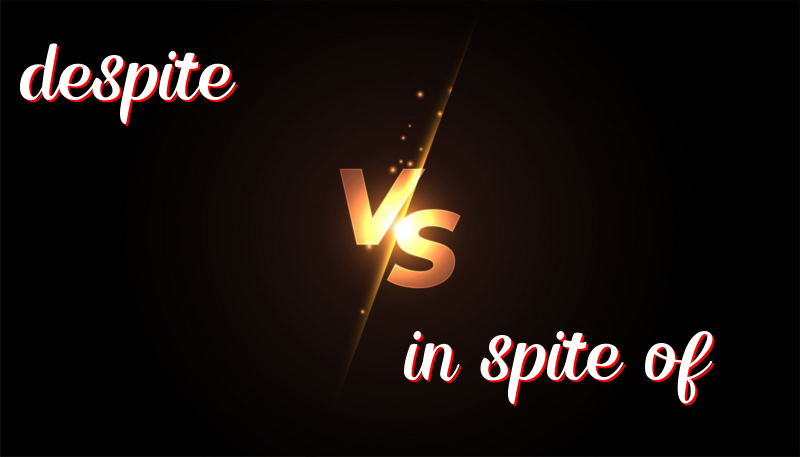Using Despite and In Spite Of: Simple Differences and Examples
Understanding the Difference: Despite vs. In Spite Of
Introduction
Sometimes, we use words that mean the same thing. “Despite” and “in spite of” are two such phrases. They both mean to do something even when there is a problem or reason not to. Let’s learn more about them.
History of the Words
The word “despite” comes from Old French and has been used since the 14th century. “In spite of” uses the old word “spite,” which means without caring for the bad things. They both have the same idea but come from different beginnings.
How to Use “Despite”
“Despite” is used before a noun or “ing” verb. It shows a contrast or the opposite. For example, “Despite the rain, we went out.”
Examples:
- Despite the cold weather, she went swimming.
- He ate the dessert despite being full.
- Despite not studying, he passed the test.
- The baby was happy despite being sleepy.
- She finished the race despite hurting her foot.
How to Use “In Spite Of”
“In spite of” is also used before a noun or “ing” verb. It means the same as “despite.” For example, “In spite of the rain, we went out.”
Examples:
- In spite of the cold weather, she went swimming.
- He ate the dessert in spite of being full.
- In spite of not studying, he passed the test.
- The baby was happy in spite of being sleepy.
- She finished the race in spite of hurting her foot.
Trick to Remember the Difference
Think of “despite” as one word, and “in spite of” as three words. Use what feels easier for you. They mean the same thing, so your sentence will still be correct.
Summary
“Despite” and “in spite of” both show contrast. They mean doing something even when there are reasons not to. You can use either one with a noun or “ing” verb. Just remember, “despite” is one word and “in spite of” is three words, but they work the same way in a sentence.

Leave a Reply
You must be logged in to post a comment.